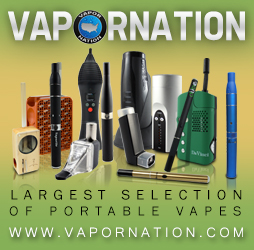Drug testing w/ Labcorp and LexisNexis: How to disclose prescriptions?

I gave a urine sample to LabCorp today for pre-employment screening. A LexisNexis lab a few hundred miles away is the MRO. I have prescriptions for medications that will probably show up on the test (not marijuana), which I take or have taken as prescribed at therapeutic doses. Neither the medication nor the conditions for which it was prescribed affects my ability to perform the job for which I am applying. I was not asked to disclose my medications before or after giving the sample. No one at the LabCorp facility had any knowledge of the verification procedure and LexisNexis doesn’t answer the phone on the weekends. My questions are:
Will LexisNexis contact me regarding a positive result and offer me the opportunity to verify my prescriptions? Or will they immediately report the positive result to the employer?
What form of proof would they accept? I can’t travel all the way to the physical address of the MRO with the prescription bottles, although I do have all of them.
Do I ask the prescribing doctors to fax me HIPAA authorizations and send it back to them, whereupon they fax or mail copies of the prescriptions to the MRO?
Should I get a dispensing history from the relevant pharmacies?
Or is there something else I should be doing now?
Thanks for your time.










If it becomes an issue, you can probably just photocopy your prescription bottles and submit those.
However, I don’t think it’ll be a problem. Usually pre-employment drug screens are only looking for illegal substances, not prescription drugs. If anything shows up on your test, the company doing the screening probably won’t contact you, they’ll likely just report it to your employer and then later if you request a copy of your results, you can get one.
Generally they need to add some notes on your paper for this medications. Contact your new employer because lab will send result to them .Fax from your doc is good idea, print copy to your employer.
Laboratory detection methods should be:
Initial test, first known as screening test ,usually done by immunoassay (EMIT, ELISA, and RIA are the most common).
The second, known as the confirmation test (usually GC/MS, or LC/MS/MS), is applied to samples that test positive during the screening test.Some laboratory run both screening and confirmation (if company order the test pay for) but also many company (order the test) doesn’t pay for conformation in case of “fail positive”.
“False positive” samples from the screening test can be negative on the confirmation test.GC/MS test can tell the difference between chemically similar drugs (drugs from medications)
As a matter of fact, you can request this GC/MS test no matter who is testing you
Especially since you cited one medication that is known for causing false positives .
LexisNexis follows result verification procedures based on drug testing Federal guidelines (49 CFR Part 40). You can find the regulations at the following website http://www.dot.gov/ost/dapc/NEW_DOCS/part40.html?proc.
Even if your particular test does not qualify as a DOT regulated test, LexisNexis generally follows the same process.
Here’s basically how it works. The testing laboratory and the Medical Review Office (MRO) are separate entities within the drug testing process. When your specimen is collected the collector should not ask you for any prescription medication information. The LabCorp collector sends the specimen to the LabCorp laboratory for analysis. Your prospective employer has established a test panel they want your specimen tested for. It’s possible that whatever medication you are taking may not even show up on the test. Once the analysis is completed, the sample is sent to a Medical Review Officer (MRO). If something is found in your specimen a MRO will review your result. A MRO is a licensed physician that will determine if there is a legitimate medical explanation for a substance in your specimen. LexisNexis employees physicians that are certified by AAMRO or MROCC. The MRO will contact you via phone to have a confidential conversation about your result and will determine if any medications you are taking could have produced the result of your test. They will tell you exactly what they need in order to verify this information. Typically verification is done by contacting your pharmacy. This all happens over the phone, no need to travel anywhere. Once the MRO has what they need the final result is reported to your employer. If you are taking a medication that shows up on your result but you have a legitimate reason for it, your test is reported as negative (or good) to your employer. The medications you are taking are kept confidential.
At this time, there is nothing for you to do except gather your prescription information so in the event a MRO contacts you, the information is readily available.